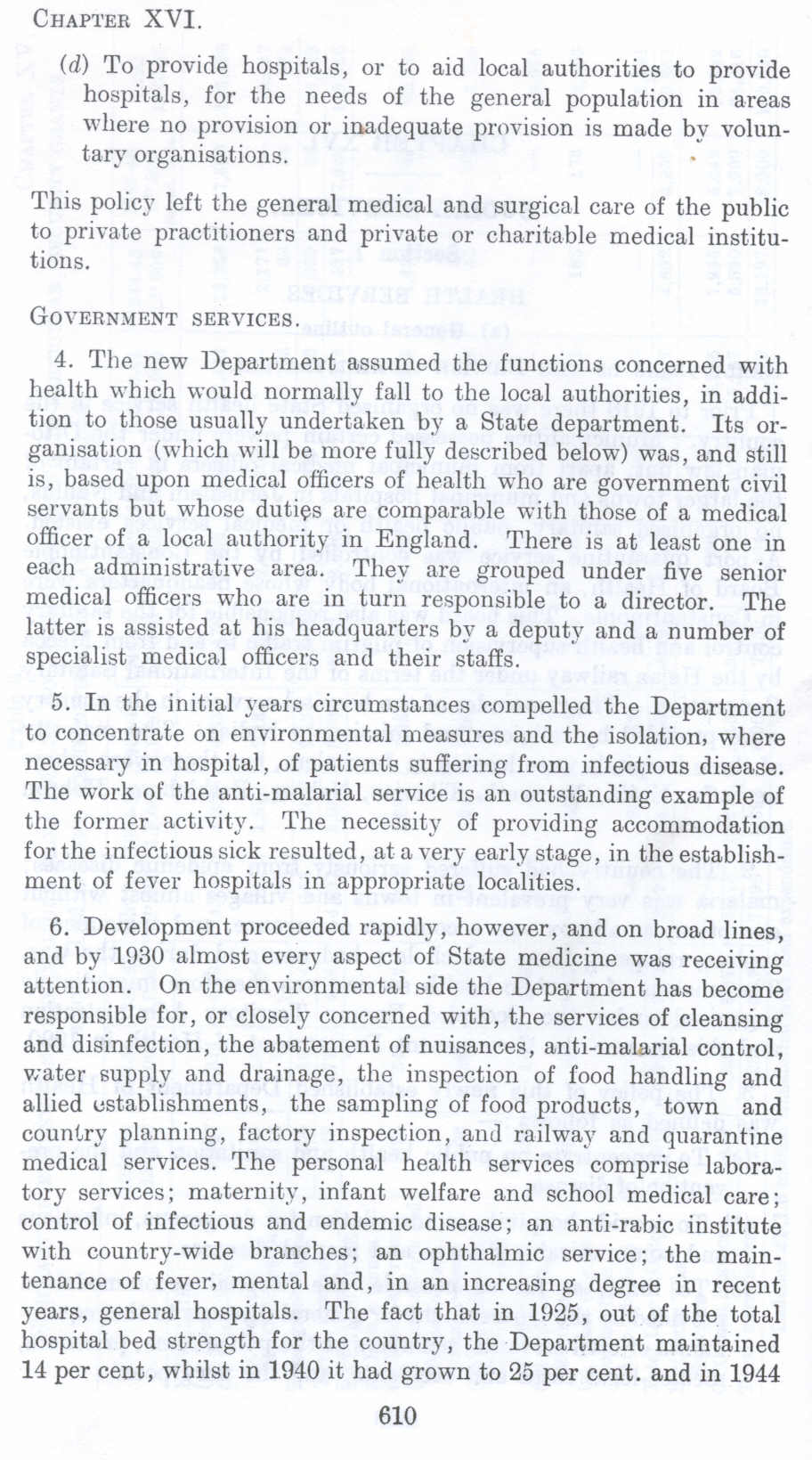| Prev | Next |  |
| Prev | Next |
| PalestineRemembered | About Us | Oral History | العربية | |
| Pictures | Zionist FAQs | Haavara | Maps | |
| Search |
| Camps |
| Districts |
| Acre |
| Baysan |
| Beersheba |
| Bethlehem |
| Gaza |
| Haifa |
| Hebron |
| Jaffa |
| Jericho |
| Jerusalem |
| Jinin |
| Nablus |
| Nazareth |
| Ramallah |
| al-Ramla |
| Safad |
| Tiberias |
| Tulkarm |
| Donate |
| Contact |
| Profile |
| Videos |
Government Health Services in Palestine before 1948 (Nakba), British Mandate: A Survey of Palestine: Volume II - Page 610. Chapter XVI: Social Services : Section 1: Health Services : (a) General Outline : |
Disclaimer
The above documents, article, interviews, movies, podcasts, or stories reflects solely the research and opinions of its authors. PalestineRemembered.com makes its best effort to validate its contents.


Post Your Comment
*It should be NOTED that your email address won't be shared, and all communications between members will be routed via the website's mail server.
(d) To provide hospitals, or to aid local authorities to provide hospitals, for the needs of the general population in areas where no provision or inadequate provision is made by voluntary organisations.
This policy left the general medical and surgical care of the public to private practitioners and private or charitable medical institutions.
Government SERVICES.
4. The new Department assumed the functions concerned with health which would normally fall to the local authorities, in addition to those usually undertaken by a State department. Its organisation (which will be more fully described below) was, and still is, based upon medical officers of health who are government civil servants but whose duties are comparable with those of a medical officer of a local authority in England. There is at least one in each administrative area, They are grouped under five senior medical officers who are in turn responsible to a director. The latter is assisted at his headquarters by a deputy and a number of specialist medical officers and their staffs.
5. In the initial years circumstances compelled the Department to concentrate on environmental measures and the isolation, where necessary in hospital, of patients suffering from infectious disease. The work of the anti-malarial service is an outstanding example of the former activity. The necessity of providing accommodation for the infectious sick resulted, at a very early stage, in the establishment of fever hospitals in appropriate localities.
6. Development proceeded rapidly, however, and on broad lines, and by rn30 almost every aspect of State medicine was receiving attention. On the environmental side the Department has become responsible for, or closely concerned with, the services of cleansing and disinfection, the abatement of nuisances, anti-malarial control, water supply and drainage, the inspection of food handling and allied establishments, the sampling of food products, town and country planning, factory inspection, and railway and quarantine medical services. The personal health services comprise laboratory services; maternity, infant welfare and school medical care; control of infectious and endemic disease; an anti-rabic institute with country-wide branches; an ophthalmic service; The maintenance of fever, mental and, in an increasing degree in recent years, general hospitals. The fact that in 1925, out of the total hospital bed strength for the country, the Department maintained 14 per cent, whilst in 1940 it had grown to 25 per cent. and in 1944
610